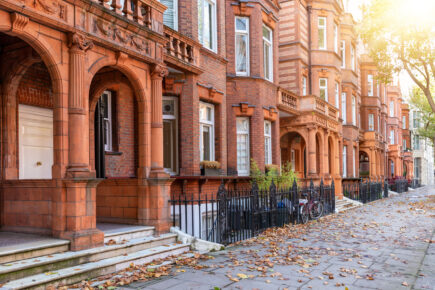Current town centre use classes relating to shops, restaurants and cafes, offices, financial and professional services, learning and community uses will be incorporated into three new use classes from 1 September 2020 as part of an overhaul of the system. The government aims to deliver flexibility for developers at a time when there is a need to revitalise town centres.
The Use Classes are being overhauled by the Town and Country Planning (Use Classes) (Amendment) (England) Regulations 2020 (“the Amendment Regulations”). These regulations make significant changes to the Use Classes Oder 1987, with the aim of stimulating businesses on the high street in a bid to halt its decline.
What do I need to know?
The most fundamental change is the new ‘broad’ Class E, ‘Commercial, Business and Service’. This will incorporate:
- Retail uses, cafes and restaurants, financial and professional services (previously Classes A1, A2 and A3);
- Gyms (previously Class D2);
- Medical services (previously in Class D1);
- Children’s nurseries (previously in Class D1); and
- Offices, research and development facilities and some industrial uses (previously in Class B1).
Another new introduction is the new Use Class F, which is split in two:
- F.1: which is ‘learning and non-residential institutions’, and encompasses former Class D1 uses (non-residential education uses, art galleries, museums, libraries, public halls, public worship or religious uses and law courts) apart from medical and health services which have now been allocated to the new Class E.
- F.2: which is ‘local community’ and incorporates small ‘essential’ shops (less than 280sqm provided that there is no other such shop within 1km), community halls, outdoor sports or recreation areas and indoor and outdoor pools and ice skating rinks. These uses all previously fell within Class D2, save for small essential shops.
Uses which are not included in the new classes, fall under ‘Sui Generis’. The non-exhaustive list has been expanded to include:
- Drinking establishments (previously in Class A4)
- Hot food takeaways (previously in Class A5)
- Drinking establishments with expanded food provision (previously in Class AA)
- Multiple uses which were previously in Class D2, including: venues for live music performance, cinema, concert hall, bingo hall and dance hall.
When is this happening?
The Amendment Regulations will come into force on 1 September 2020 and it is expressly stated that on this date the use classes A1 (shops), A2 (financial and professional services), A3 (restaurants and cafes) and B1 (business) which are intended to become part of the new Class E will treated as such on this date. However, there is some ambiguity as to whether classes A4, A5 or D will also be treated as being reallocated to their new use classes on the same date, as they are not explicitly referred to in the Amendment Regulations. The general consensus is that they will be because they are not specifically excluded from starting on 1 September, but B P Collins is seeking clarification on this.
Existing applications submitted before 1 September 2020 that refer to current use classes will be determined by the planning authority using the current classes rather than the ones brought about by the Amendment Regulations.
From 1 September until 31 July 2021 (inclusive) there will be a transition period in which pending applications, Article 4 Directions and the General Permitted Development Order (GPDO), where it refers to use classes, will still apply the current use classes.
After the transition period, the current use classes will continue to be used in respect of certain sections of the Town and Country Planning (Development Management Procedure) Order 2015, the London Gateway Port Harbour Empowerment Order 2008 and the Town and Country Planning (Mayor of London) Order 2008).
Why is this change happening?
The purpose of the reclassification is to increase flexibility for planning permission, allowing business owners to switch more fluidly from one use to another. This is the function of the new diverse Class E, which has absorbed many uses which were previously separate and would have required planning permission to change from one to another. A welcome side effect of this added freedom for operators could be an increase in value for land and businesses falling into Use Class E.
The new class of 'Local Community' uses (Class F2), will ensure vital community facilities are protected through the planning system. Changes of use within this class do not need planning permission.
However, for businesses which now fall into ‘sui generis’, some flexibility, and therefore value, may be lost as they will be subject to more planning controls. Generally planning permission is required to change from one ‘sui generis’ use to another, which may have a negative effect on the drinking establishments, hot food takeaways and gastro-pubs which have been moved into this category.
If you’d like to speak to a lawyer about any if the matters raised in this article, or any other development issue, please contact the commercial property team on 01753 889995 or email enquiries@bpcollins.co.uk.
















